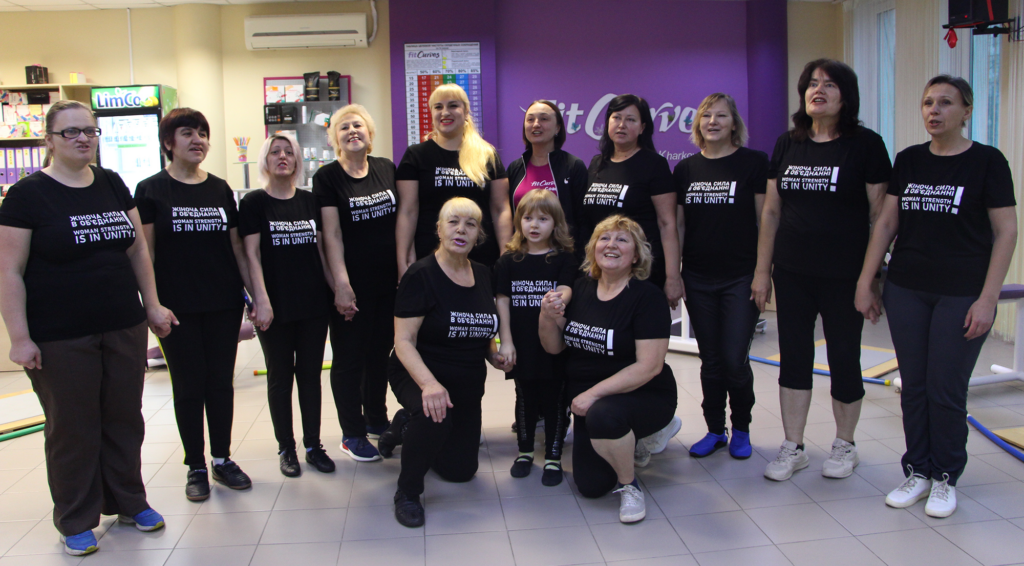
Even before the war escalated on February 24, 2022, our work with women in eastern Ukraine has shown that violence against women is a military tactic. Women’s experiences must therefore be considered in efforts to deal with war crimes. Otherwise, there can be no sustainable, fair reconstruction and real security in Ukraine.
In 2021, we organized “Women’s Peace Roundtables” in Eastern Ukraine with our partner organization Kharkiv Regional Foundation Public Alternative (PA). In a protected setting, women with diverse biographies gathered to discuss security. They shared their experiences in a new social circle of women. The topics included domestic violence, insecurity in public spaces, access to health facilities, lack of job opportunities, and poverty. Together, they formulated demands to the authorities. Then came the war. Eastern Ukraine, where living conditions and women’s mobility were already compromised before the war, was particularly affected. The women are now using the confidence gained in the groups as a basis for engaging in various areas of emergency assistance.
At the end of 2022, we launched the follow-up project, “Women’s Platform for Peace.” The women from eastern Ukraine and Switzerland with experience in social work or art met again. This encounter enabled them to exchange their concerns, ideas, and needs in a safe space and to discover common ground. On this basis, they plan to implement projects aiming at building social and economic security and collective empowerment.
In the workshop, the women learned “storytelling” techniques: they wrote down their stories and told them to each other. Everyone agreed that these stories should become public for dealing with war crimes, with the past and reconciliation, and for reconstruction, in line with human rights and gender justice.
But the (post-) war economy does bode well in this regard: Budgets for military and surveillance technologies increase, profit taxes for corporations sink, to the advantage of war-profiting corporations. Investments in education, health, or violence prevention are not on the official agenda. The population, the women as care workers should solve them themselves. From a feminist perspective, this is a highly conflictive and exploitative policy.
Women’s experiences reflect the violent dimension in the patriarchal fabric of society, not only in times of war. Ukraine has the advantage of having many committed feminist organizations on its soil, familiar with Western procedures and whose demands must be taken seriously – also in the area of reconstruction. Only in this way will Ukraine achieve an inclusive society that respects human and women’s rights. We demand that women’s experiences and voices be heard in all conferences on the reconstruction of Ukraine (such as the Ukraine Recovery Conference 2023).